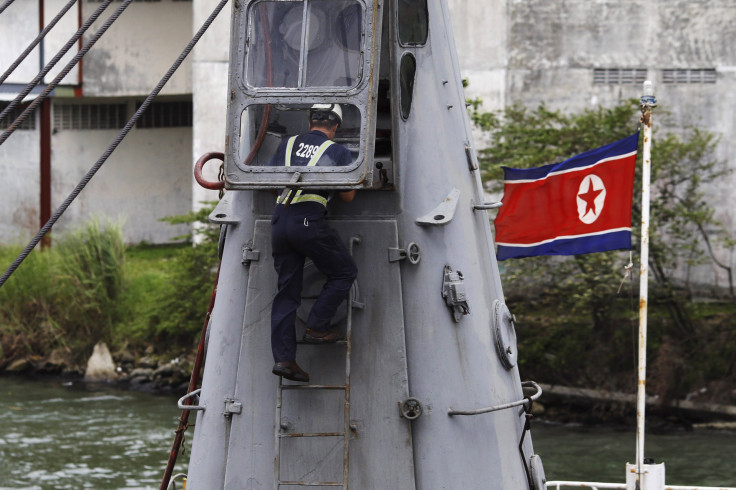After North Korea- Bound Cargo Seizure, Panama Warns Canal Users To Declare Everything

Panama is not having it anymore. After the controversy around the North Korean ship Chong Chon Gang, caught in July going through the canal with an undeclared hold full of weapons -- old Soviet jet fighters and anti-aircraft missiles -- the government has warned every country using the waterway. The Panamanian government is telling the world that trying to sneak clandestine cargo through one of the key points of international trade is nothing short of a threat to maritime security.
In a statement sent to international media like Spanish newspaper El País, the government asked shippers to respect the neutrality agreements that cover transit through the canal. “[Panama] hopes that nations who use the canal for transportation of any kind of cargo fulfill their obligation to declare it. Not doing so puts in danger the safety of the canal and the security of sea commerce,” read the statement.
“It is also expected that that nations will respect the protocol of the Treaty Concerning Permanent Neutrality, in effect since 1977,” it continued.
The Neutrality Treaty establishes full neutrality for the Canal, so in “times both of peace and war” it stays safe and open to peaceful transit. It also provides that the canal should never be attacked in any war by any country.
Panama also called on the United Nations Security Council to open an investigation of the Chong Chon Gang, which was intercepted as it tried to get to the Pacific Ocean and back to North Korea. “[Panama] expects the commission to determine if there were any violations of council resolutions,” read the statement.
An international mission would evaluate if the Chong Chon Gang, which left Cuba with 240 tons of weapons hidden in 10,000 tons of sugar, violated the international embargo on North Korea, imposed as a response to its nuclear tests.
Cuba admitted that the North Korean ship transported "obsolete arms" to be repaired and returned to the island. Former President Fidel Castro called the whole issue a “slander of our revolution.”
“I assure that for years we have been rejecting to sign those embargoes, because we did not think it was fair to put any state under such conditions. We would never try to build a nuclear weapon,” he said.
© Copyright IBTimes 2024. All rights reserved.





















